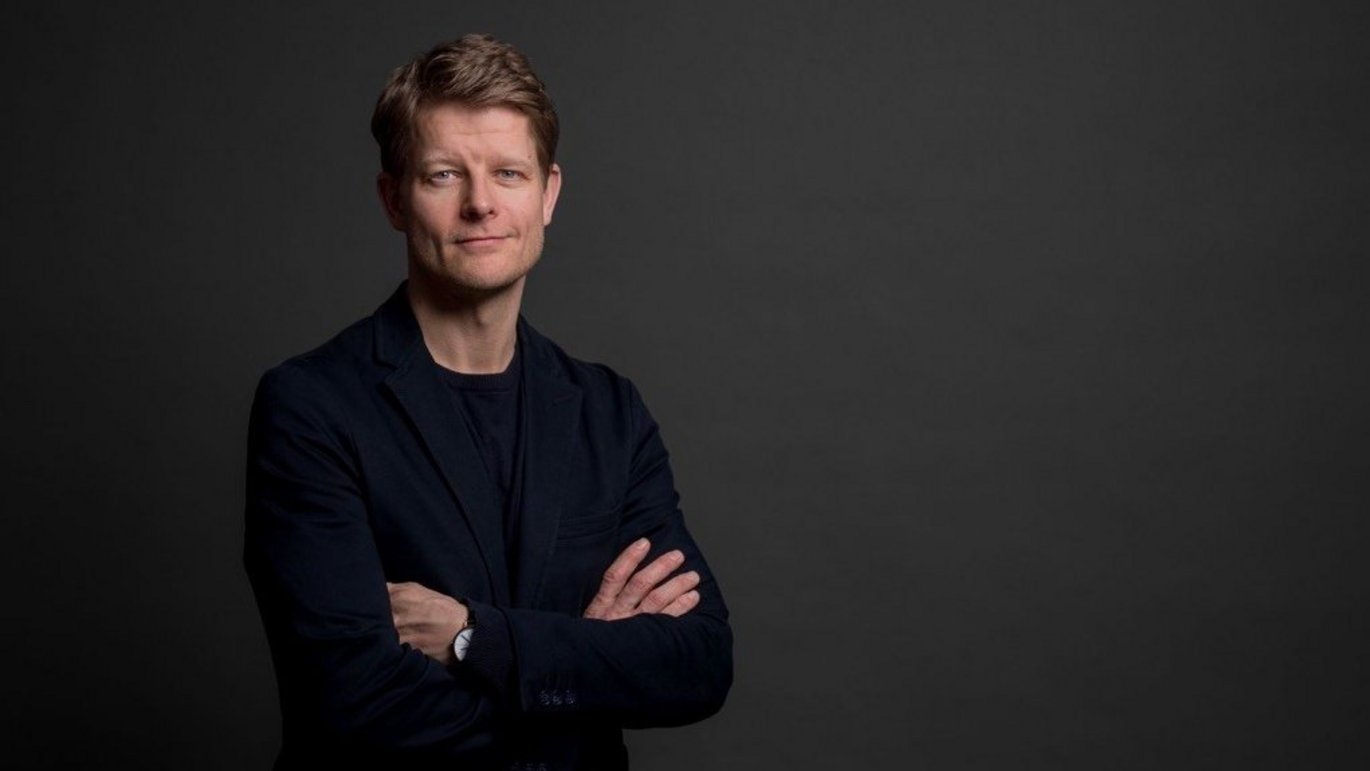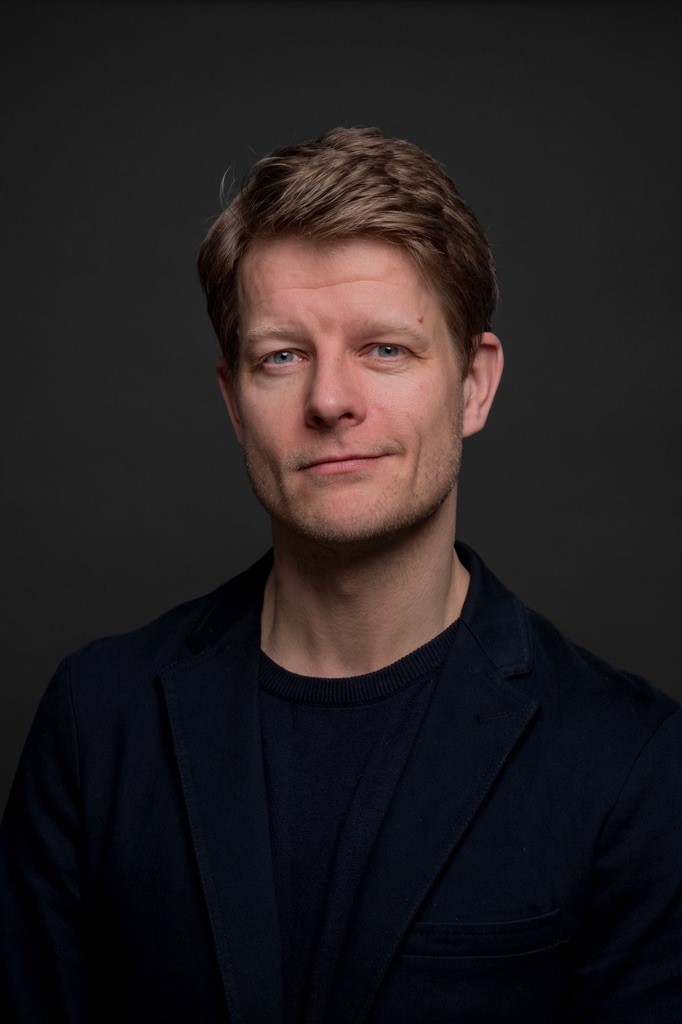Winner of Elite Research Prize: "We need a broad knowledge base to draw on when the world develops in unforeseen ways"
Peter Dalsgaard conducts research into people’s use of technology in creative processes. A field that for many years has remained somewhat niche. Now he has just won the Elite Research Prize. For him, this highlights the university’s duty to support a wide palette of research fields that can be called on when required. We must accept that not all research can be highly topical or relevant all of the time, he says.

“Would you like a coffee?” Peter Dalsgaard leads the way to the kitchenette on the second floor of the Wiener Building in Katrinebjerg. And in the time it takes the machine to make two drinks, two of his colleagues manage to come in and congratulation him.
On 20 February, Peter Dalsgaard received the national Elite Research Prize – conferred on him by HM Queen Mary and minister for higher education and science Christina Egelund. The prize includes DKK 1 million for research activities and DKK 200,000 as a personal award of merit.
In its nomination of Peter Dalsgaard, the Ministry of Higher Education and Science writes that his “groundbreaking research [is] helping to keep people in the centre” in a “rapidly changing technology landscape in which technological breakthroughs are often in focus.”
A niche that became popular
In his research, Peter Dalsgaard examines the relationship between people and IT. And in this interdisciplinary research field between the humanities and computer science, he leans more towards the former discipline. Because, for the last ten years, he’s been particularly interested in how people use technology when working creatively – and this question still fascinates him.
“I’m not the first to conduct research on this topic, but it has been pretty niche for many years. Digitalisation has often been about how to make routine work more efficient, even though people also use digital tools to support creative projects. It’s just that this aspect hasn’t featured as highly in the world of research,” he explains.
Today, however, many people have turned their attention to new digital technologies that strike at the heart of this intersection of technology and people – something that Peter Dalsgaard has been exploring for years.
“Since ChatGPT made its mark, many more people have become aware of the potential associated with computers being able to perform tasks that we previously assumed only humans could perform. Because we assumed that computers could not be creative,” he says.
We need a wide range of research fields we can call on
In this way, Peter Dalsgaard’s area of research is an example of a niche field that suddenly became highly relevant for society in general. And this, according to Dalsgaard, illustrates the importance of investing in a wide range of research fields.
“We must accept that not all research can be highly topical or relevant all of the time.”
“It’s not easy to know what research we’ll need at any given time. So the university has a duty to support a wide palette of research fields that can be called on when required. We must accept that not all research can be highly topical or relevant all of the time. Because we need a broad knowledge base to draw on when the world develops in unforeseen ways,” he says.
Among recent examples of research that proved to be important to the general public, Peter Dalsgaard mentions research on the history of Ukraine and the conflict in Palestine.
With this in mind, Peter Dalsgaard is critical of the political management of research funds, which he believes is becoming more prevalent.
Over time, more money is being earmarked to help research go in particular directions. Not by directing more people into specific areas but by redistributing funding. So there are areas in which no research is being done at all, or in which it’s difficult to conduct research. In my field, we have been lucky and skilled at securing funding, but there are many fields that are being starved. And then there is nobody to take the call when we suddenly need answers, because politicians have failed to support a wide variety of research fields,” he says.
A generous research team
Of course, it takes more than funding to create a thriving research team. If you ask Peter Dalsgaard, it also takes ambition, curiosity, compassion and generosity.
“I once talked to a professor, a role model for me, who said something to the effect that, in the world of research, everyone is smart and clever. But that you could stand out by being kind and compassionate,” he explains.
Early in is career, when building up a research team, he spent a long time looking for inspiration from colleagues who had already established thriving research groups.
“I looked at groups I wanted to emulate, and I talked to the people there to get an insight into which values they built their teams around and what they were aiming for. You need to have something to aim for when you start something new – and ambition, curiosity, compassion and generosity encapsulate what I’m striving towards,” he explains.
“The research teams that thrive over time are those in which people are generous enough to give their time.”
While ambition and curiosity often arise naturally in leading research fields, compassion and generosity are two values that he actively strives to foster in his research team. He has drawn inspiration from his own mentors and from conversations with both local and international colleagues.
“Many people in our field are incredibly busy, but the research teams that thrive over time are those in which people are generous enough to give their time. Not just by being there but by making it clear that they are engaged in what you’re doing. As a research director, I think that generosity is about taking researchers in my team seriously and being interested in why they are researching what they are and how I can help them develop their area of research,” he says.

Celebrate the team
When Peter Dalsgaard was awarded the Elite Research Prize, he dedicated it to his research team with these words:
“Our groundbreaking results represent a huge collective effort by passionate people who pursue their ideas.”
In his opinion, it is essential to celebrate the collective and shared endeavour rather than simply singling out the individuals leading the teams.
“It’s easy to describe a classic hero’s journey, but it could be really interesting to develop other ways of talking about research – ones that better reflect the way it actually takes place. We all have notions of the unique solitary figure in the research world. And there are unique individuals, but most research actually takes place collectively,” he says.
It is for this reason that Peter Dalsgaard helped to found the Research Environment of the Year award when he was a member of the Danish Young Academy between 2016 and 2021. Early career researchers can nominate their research team for the award, which “recognises the importance of the research environment for the individual’s work, achievements and well-being” and for “the members’ contribution to society.” This is what the Young Academy writes on its website.
Individual drive is also important
But this time it was Peter Dalsgaard himself – and not his entre research team – who received the prize, handshake and honour. And he recognises that, in addition to good collaboration, it also takes ambitious and talented individuals to conduct successful research.
“It’s perfectly fine to honour the individuals. It’s just a problem if we don’t sufficiently acknowledge and celebrate the team.”
“It’s important that there are people who are passionate about their research. I’m one of these people. And so are many of the people I bring into my research team. Individual drive and curiosity are undoubtedly important,” he explains and continues:
“Research can sometimes be driven in certain directions by particularly motivated individuals, but, in modern research especially, it’s not only one person who sits and develops all the ideas. In my field, we benefit from a range of competencies and research avenues. It’s perfectly fine to honour the individuals. It’s just a problem if we don’t sufficiently acknowledge and celebrate the team.”
There is a knock on the meeting room door. One of Peter Dalsgaard’s colleagues needs the room for a meeting in ten minutes, so we round off our interview and head back to the kitchenette to put our cups in the dishwasher.
“Oh, and by the way, Peter,” his colleague calls out.
“Huge congratulations.”
Translated by Sarah Louise Jennings.

